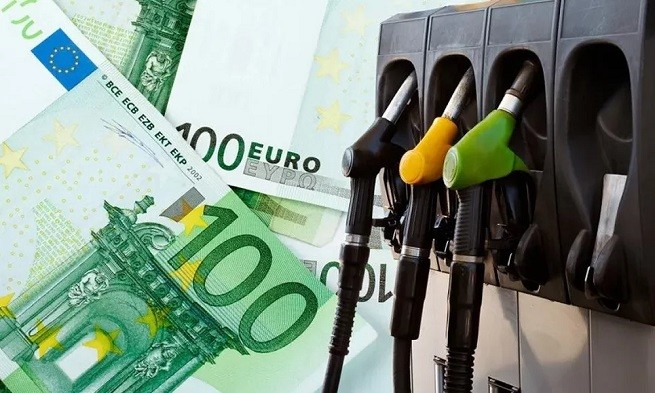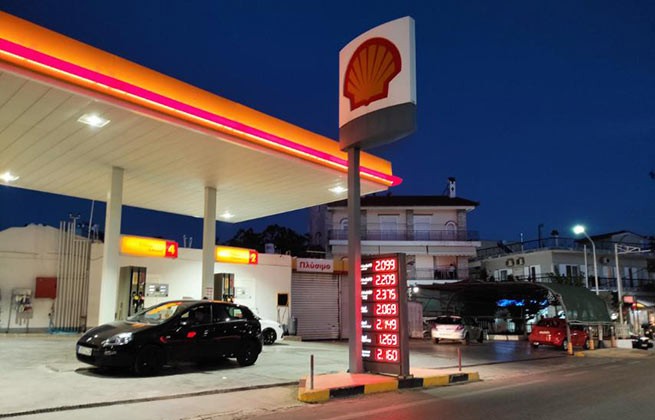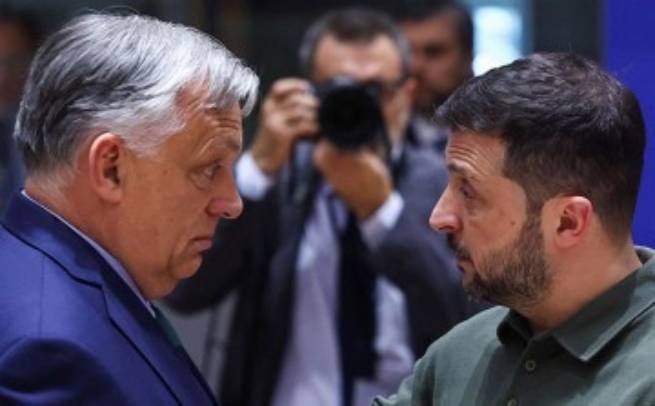Fuel prices in Greece are not just high. They are significantly higher than the national average EU, even after and before taxes. This is not a new fact, and it concerns not only consumers.
This is also of concern to the competent authorities and operators of the petroleum products market, which is characterized by strong phenomena of irregularities and unfair competition to the detriment of healthy companies.
The petroleum products market has still not implemented measures taken in 2012 to combat irregularities and lack of competition, resulting in the country's citizens bearing a double burden: as consumers – due to high prices, and as taxpayers – due to the loss of hundreds of millions of euros of public income per year.
Regulatory barriers
The latest published data from the EU's DG Energy supports the conclusion that Greece is one of the most expensive markets in Europe in terms of fuel prices. Moreover, the progress of the latest competition commission investigation shows the reluctance of the competent authorities to remove regulatory barriers in order to improve competition and normalize prices.
According to data published on 13/5 by the EU Directorate General for Competition, the retail price of unleaded petrol (after taxes) in Greece was 1,949 euros/liter, which is the third most expensive in Europe after the Netherlands (2,046 euros/liter) and Denmark (2,045 euro/liter).

The pre-tax price of unleaded petrol in Greece was €0.856/litre, the seventh highest in Europe. The retail price of diesel in Greece was €1.657/litre, 9th in Europe, and the pre-tax price was €0.911/litre, fourth in Europe.
Measures introduced in 2012 to combat non-performing debt and a lack of competition in the sector remain ineffective.
The retail price of fuel (pump price) is determined in three stages, the first of which is the international price of products (gasoline, diesel fuel, etc.), on the basis of which the selling price of oil refineries is formed. To this, sales companies add their own operating and management costs, as well as profit margins, to formulate the selling price for the last link in the chain – approximately 5,500 gas stations throughout the country. At this stage, the price of gasoline will be determined by both the operating costs and profit margins of gas stations. It should be noted that marketing companies and gas stations operate under profit margin restrictions introduced by law from September 2021.
A special place in this way of creating costs is occupied by taxes and fees, which in Greece consistently exceed the average indicators of European countries. Greece ranks fourth in terms of tax burden on unleaded gasoline among EU members (after the Netherlands, Italy and Bulgaria), exceeding the European average by 20%.
Analysis of data on the average final price of gasoline in the period from 15/1/2021 to 15/7/2023 shows that VAT and VAT account for 50-60% of the final price of the product, depending on the international price. The price of oil refining ranges from 30 to 47% of the final consumer price, and the profit margin of companies and gas stations ranges from 3 to 9%. From this analysis it is easy to conclude that excessive taxation, which is a government choice, and international price are the main culprits for the high prices paid by the consumer.

“Rockets and Feathers”
In Greece pre-tax prices for gasoline and diesel fuel deviate upward from the average for European countries, which cannot be justified either by fluctuations in world prices or by high taxation. This issue has been the subject of an investigation by the Competition Commission for about 20 years. Prompt investigations were carried out between 2004 and 2015, which also resulted in fines of over €9 million and fines for businesses. Since 2012, the commission has recommended a number of measures to the state to strengthen competition. Only a few of them were adopted, and some were partially implemented.
At the end of November 2022, the Competition Commission launched a regulatory intervention procedure based on the results of the mapping of the petroleum products market, which began in March 2022. In other words, it began to assess whether conditions for effective competition prevail at the three stages of fuel production and distribution in the Greek market. This is explained by the presence of signs of asymmetric price adjustment, which she called the phenomenon “Rockets and Feathers”. That is, retail prices rise immediately when the international price rises, but fall slowly when it falls.
High concentration
Regarding competitive conditions, during the initial study the commission found signs of a high degree of concentration in the oil refining market and weak competition between two oil refining companies, while the prices for the main products (unleaded and diesel gasoline) are almost identical. It also identified a moderate to low degree of concentration in the wholesale market and, finally, possible concentration at the local level, at service stations. A significant increase in turnover and profitability ratios of oil refining and wholesale companies in the period 2021-2022 was also revealed.
This regulation is the competition commission's most powerful tool for intervention in a sector of the economy, as it can make structural decisions on the market, such as forcing companies to change their behavior or even sell assets if it finds that competition is being distorted. Although the commission has completed its investigation, it has not yet announced its findings, which were expected in October 2023 or by the end of the year at the latest.
The Commission reportedly did not confirm the phenomenon of asymmetric price adjustments at different stages of the market. But it continued its investigation, sending out new questionnaires to refiners, companies and service stations to assess an issue that had been addressed in two previous regulations: the issue of buffer stock pricing and whether it continues to distort competition.
What happens to 90-day warranty supplies?
The obligation to maintain 90-day guarantee stocks by companies importing oil and petroleum products has in the past caused concern not only for the competition commission and the European Court of Justice, but also for the troika during the period of the memorandum, since it is directly related to competition in the domestic market.
Under European regulations, companies importing oil and petroleum products for their own use or for sale on the Greek market are required to maintain inventories equal to their net domestic consumption in the 90 days of the previous year. In 2002, Law 3054 changed the regime, which had been in force since 1985, following a judgment condemning our country by the European Court of Justice, which ruled that the system distorted competition between domestic production of petroleum products and direct imports. Companies without warehouse facilities were required to store products in certified warehouses, which were mainly provided by oil refineries ELPE and Motor Oil.
Import is not possible
Third party access to storage facilities to maintain safety stockpiles was, according to the 1985 law, only subject to an exclusive supply agreement with the owner of the storage facilities (essentially the refineries). This condition made imports and, accordingly, competition at this stage of the market almost impossible. In addition, this scheme did not allow for the possibility of maintaining reserve stocks in another EU country.
The problem of the lack of competition resulting from these arrangements was identified by the Competition Commission in a decision taken a year earlier in 2001. In 2008, the commission returned with the regulation because it found that, despite the positive changes the 2002 law made over the past, there were “significant problems that contribute to the lack of competition and general opacity that characterizes the refining market.” In his decision, he proposed, in particular, the creation of an independent Central Fund Authority, following the example of other European countries, as a measure to strengthen imports and competition. In the same decision, the regulator required oil refiners to disclose the costs of maintaining safety stocks and the surcharges they charge to marketing companies, and not to impede direct access to independent service stations.
In 2008, the Competition Commission concluded that there were “significant problems that contribute to the lack of competition in the refining market.”
“To answer the question of whether there are sufficient competitive pressures in the refining market, it is necessary to determine whether favorable conditions exist to allow wholesalers and other importers to directly import petroleum products at competitive prices,” the commission’s decision said. She concluded that, based on the findings and results of the industry investigation, such conditions do not exist. The Commission also noted that only refiners have warehouses with the appropriate specifications, which gives them a comparative advantage over sellers.
She briefly identified the problem of competition preventing imports and proposed the creation of an independent central agency for the storage of security stocks, noting at the time (2008) that of the 27 EU countries only Greece, Italy and the UK did not have such an authority. She also mentioned that France, in order to increase competition, has relieved small importers of the obligation to maintain safety stocks.
According to the commission, refinery storage facilities can be considered “essential” infrastructure because environmental and other restrictions prevent the creation of new storage facilities. This would ensure equal access for companies responsible for maintaining safety stockpiles by pre-administrating conditions and pricing rules that would need to be approved by RAOEY, as is the case with access to electricity and gas networks.
EU Directive
In 2013, under pressure from the Troika, Greece harmonized its activities with the EU directive, introducing the possibility for importing companies to store 30% of their mandatory stocks in another European country. The same law introduced the possibility of creating a Central Fund Institution (CFI). To date, this body has not been established as it is felt that the size and maturity of the market do not require the creation of a state-owned company to manage the reserves.







More Stories
Cryptocurrency Price Increase – BluestoneMining
Metro to reach OPAP Arena and Petroupoli: where will the stations be located
Tourism: Norwegians 'vote' for Greece